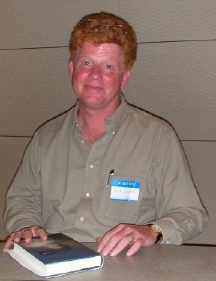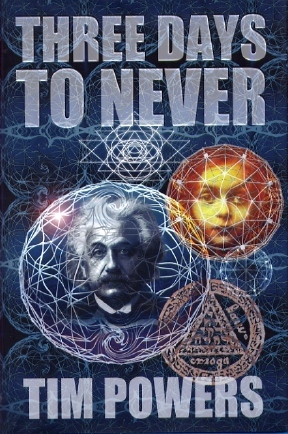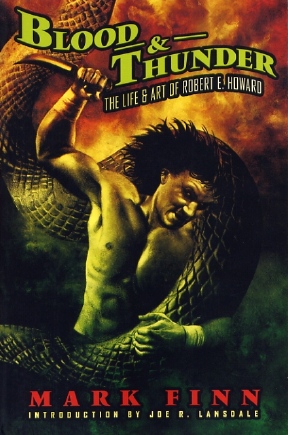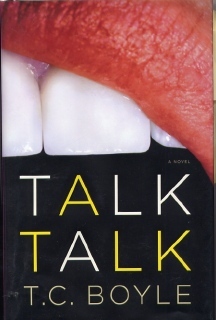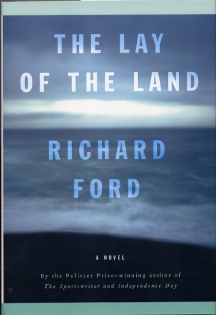|
|
|
This Just In...News from the Agony Column
|
11-24-06: Elastic Press Gets 'Extended Play' Edited by Gary Couzens |
| Mario
Guslandi Saves Your Day and Mine Thought
I wouldn't be able to update today, because company arrived earlier
than I expected,
but count on Mario Gusdlandi to come though when things get rough. I
suggest you proceed directly to his review of 'Extended
Play', the
newest offering from Elastic Press edited by Gary Couzens, who, if
I am not mistaken, plays a pretty big part in IZ. I really appreciate
that Mario takes his valuable to read where this editor has no
time to venture.
And now, over to you Mario. |
|
11-23-06: Meeting Your Youth and Why I Assign Genres |
|||
A
Review of Keith Donohue's 'The Stolen Child'
I've just posted my review here. If you’re looking for a gift book, this one should be high your list, although it suffers the usual problem of a great gift book. The problem being that once you buy it, you might start reading it and won’t want to let it go. Buy two; you won’t regret it. I'd like to take a moment to discuss the genres I've assigned the book to, to give readers an idea as to why and how I do this. First, but not necesssarily foremost, I've called this a fantasy, because, well, when you start a book with a statement like: "Don't call me a fairy. We don’t like to be called fairies anymore," you've clearly and immediately entered the realm of the fantastic, and moreover, taken one of the tropes of all fantasy over the past fifty years and put it in the first sentence. Bold,that. Also fantasy genre fiction. Next, I've called it "General Fiction", because for the most part this reads like a literary novel (even when it is discussing ideas that are quite fantastic) and will be totally enjoyable to readers of mainstream and literary fiction. It's a powerful family story with a hint of the fantastic, from the POV of the literary cadre. Then I've called it Horror, because there are many moments of deep terror, not rip-you-apart stuff, but rather, the kind of soul-searching terror that wakes you up at 4 AM. (Unless you're an insomniac like me and already awake.) I've also assigned it to the science fiction genre, with a small "sf" because Donohue is relentlessly logical when it comes to the way he extrapolates on his premise. It fulfills all the requirement of a science fiction novel without really seeming at all like a science fiction novel. Now, as to why. My hope is that readers of say, Fantasy might browse though my fantasy index and say, "Hmm...'The Stolen Child' -- what's that?" then click on the link and discover a great book that might never have appeared in their part of the bookstore. And discover, actually, a great novel. The same pretty much holds true for all the other genre assignments. The hope here is that readers can use the index by genre to discover stuff they might not have thought of as being in their preferred genre, if they have one, and thus simply, find more books to read. I interviewed Donohue earlier this year, and the good news is that he is hard at work on another novel, and that it will once again contain at least a soupcon of the strange. He wouldn’t tell me what that was, and frankly I don’t want to know. I just know that I can look forward to opening up a novel and reading words that will create the world anew. |
|
11-22-06: Better Late With 'Three Days to Never' Than Never; 'Blood and Thunder: The Life and Art of Robert E. Howard' by Mark Finn |
|||
A
Review of Tim Powers' 'Three Days to Never'
Stepping out of my reviewer self a bit and into the critic of his oeuvre self, I'd say that this novel offers an excellent combination of Powers' novels of Southern California and his more recent Middle eastern spycraft concerns. It's also one of the best evocations of the grotty but somehow sublimely beautiful suburbs of my own youth. For me, any book that involves Azusa is a book I have to love as I spent an entire summer riding my bicycle from Covina, through Azusa to the city of Industry, arriving at 11 PM to work the graveyard shift at the Mattel factory making plastic baby heads. If you just drive through once in a while, or even if you commute during the day, it's easy to miss the surreal and scary beauty of this landscape. Powers brings it to life. Here's my review; as usual, I've tried to tell you less about the plot than the dust jacket, but enough about the book to cover its literary merits, which are many. I find it interesting that both James R. Morrow and Dean R. Koontz look at 'Three Days to Never' as some sort of postmodern novel. To me, it is simply a classic use of narrative time travel, beautifully complex and richly resonant. Reeking with regret, suffused with beauty. Those are virtues that have been around a long time, longer than literary movements and moments. |
|||
Howard
the Cimmerian
The latest opus from Monekybrain is a more by-the-numbers biography, that is, detailed, from before birth to after death by the Award-winning Finn. He's got a knack for immersing the reader in the rough-and-tumble life of his subject and an encyclopedic knowledge of not only the man, but also the literature. Finn accords everyone and everything the respect they are due and not one scintilla more; by not exaggerating things, he makes the-bigger-than-life aspects of Howard seem truly bigger than life. 'Blood and Thunder' is a trade paperback with a fair number of illustrations, including one that I'nm not going to reproduce here because it's worth the price of entry alone. Robert E. Howard, in his dowdy Texas clap-board backyard, with big-ass glass of beer. Life lived to the fullest and beyond, so far beyond. Drink up, friends, hoist a beer and a book for me, and have a happy Thanksgiving. I'll be posting then as well, but Howard, Powers, every damn one of 'em knew, knows; you can't start too early because it's always too late. |
|
11-21-06: Catching up on Reviews |
|||
TC
Boyle's 'Talk Talk'
On the other hand, if you approach this as a work of literature, you'll have to be willing to accept literature that manages to take the humdrum details of everyday life and artistically re-arrange them into a terrorizing portrait of how madly that life might go wrong given the opportunity. It's really not much of stretch, but literature is not often so compulsively readable. If you require difficult reading to provide you with literary satisfaction, then 'Talk Talk' is not the book for you. Boyle completists will find more than a few nods to Boyle's other works, particularly 'A Friend of the Earth'. But the novel is as usual a standalone work, one of Boyle's contemporary novels as opposed to his more historical works. He assured me in his interview that he is working on one of the latter at the moment. Good. That will keep us happy in the next year or two. In the interim, 'Talk Talk' is one of those books that will appeal to readers of all stripes; from hardcore crime and horror-fiction readers to oh so picky literary addicts. Here's the review; and now, readers, it’s time and worth your time to seek out this fine novel. Find a bookstore that he appeared in and see if you can snag a signed copy. If and when the movie comes out, you'll be able to sell it for a potential profit. If and when someone steals your identity, you'll need to. |
|
11-20-06: A 2006 Interview With Richard Ford |
||||||
The
Lay of the Land
I was lucky enough to have the opportunity to speak with Ford just a little over a week ago, when he came to San Francisco to promote his new book, 'The Lay of the Land'. My guess is that this is probably the only interview in which you'll hear him discuss the similarities between the prose effects he creates with his fiction and William Gibson's concept of cyberspace. He's more brilliant and easy-going that you’d expect, hopping from Sartre to Maddox to Forester to the part his grandmother played in his remarkable language choice. There are more than a few moments when we discuss matters that just can't be discussed on broadcast radio, but more importantly, Ford is simply a wonderful speaker and a great conversationalist. He's really fast on his feet, no matter how peculiar the question, and he's willing not just to follow ideas, but reflect on them in real-time with an intellect that is quite amazing. You can hear this interview as an MP3, a RealAudio file or subscribe to the podcast. Prepare to be captivated by America's premiere writer. Prepare to run out and buy his books, because you'll want to read the voice that you hear. Ford is a master craftsman. Our world is all the better for his words. Surround yourself. Plunge into this construct of prose. |
